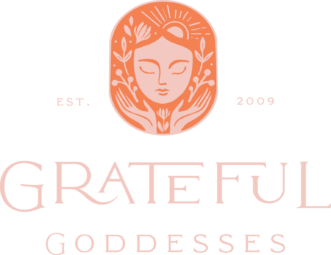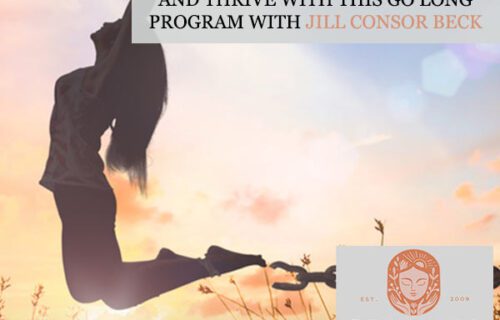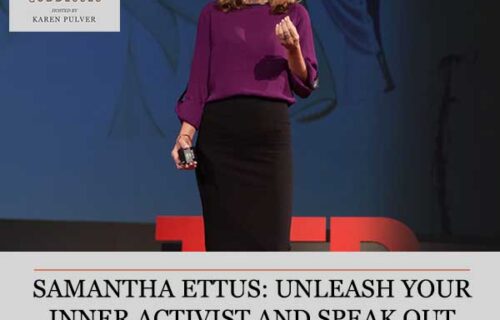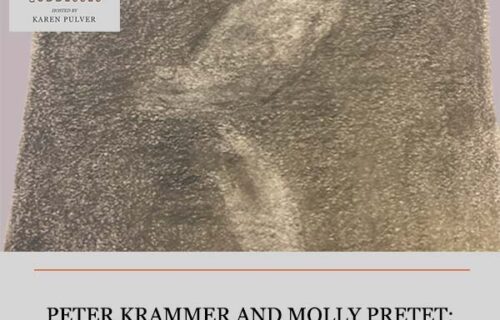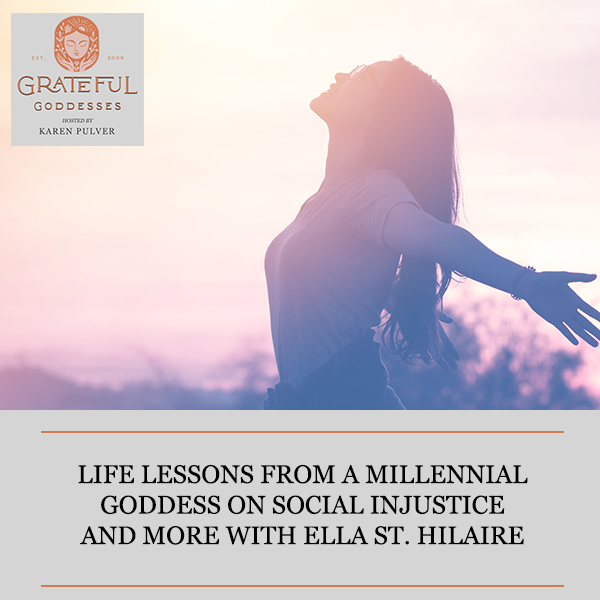
Life Lessons From A Millennial Goddess On Social Injustice And More With Ella St. Hilaire
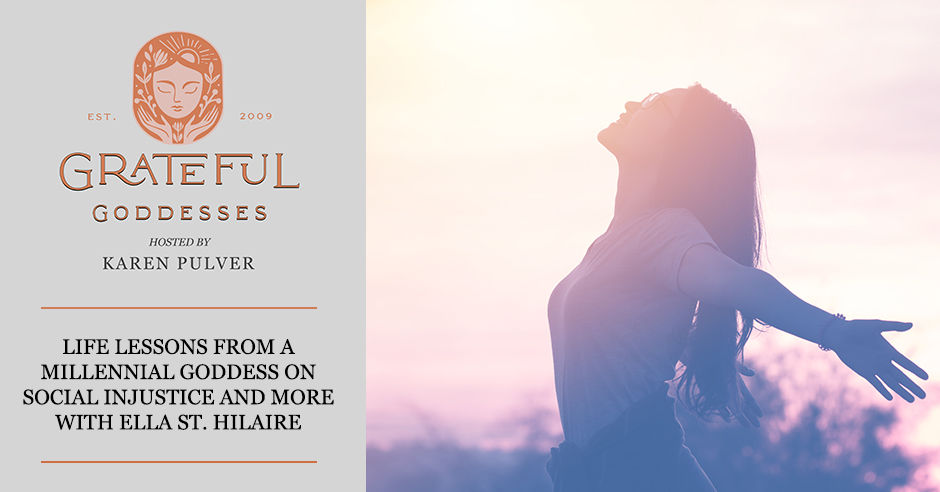
This episode, listen in as 26-year old, Ella St. Hilaire, founder of Bedrock Body, brings up life lessons from the point of view of a Millennial. She sits down with Karen Pulver and her Goddesses to talk about her passions and her new business as well as those tough yet necessary conversations about social injustice and inequality. Ella provides a fresh take on “white privilege” and explains how you can use your position to give back to your community. What is more, old soul Ella teaches us how to be a soulful young goddess—moving away from mean-spirited conversations that can hurt the soul into one that is caring and compassionate, even if your name is Karen.
—
Watch the episode here
Listen to the podcast here
Life Lessons From A Millennial Goddess On Social Injustice And More With Ella St. Hilaire
Thank you for joining us. I am incredibly grateful to be in my 50s. I never thought I would say that all those years ago. When you’re younger, you can’t wait to grow up. As you get older, you can’t wait to be younger and do everything you can to be younger. In my 50s, I’ve learned much over the years. I actually reached out to people that are older than me for advice. In fact, we had a guest goddess, Elaine Soloway, who’s in her 80s that gave us some wonderful life lessons. Now, we’re going to take a whole different twist and go on the other spectrum and learn from a fabulous, beautiful woman in her 20s. She’s 26, she’s a so-called Millennial. Some people like that term, some people don’t. We’ll ask her about that.
She’s going to teach us some important life lessons and new perspectives on how we are going to think about the world. As a grateful goddess, as a woman, it’s important to have these very challenging, yet important, crucial conversations. We’re going to be meeting with Ella St. Hilaire. She is a poet, sculptor and activist. Her work has largely been focused on magnifying the intersection of radical spiritual consciousness and social injustice initiatives. A polyglot and lifetime nomad. She draws inspiration and creative energy from collaborating with her international community. She lives in Brooklyn, New York. Thank you, Ella, for joining us on the show.
Thank you for having me.
It’s nice to have you. Thank you for saying yes to being here and for saying yes to agreeing to have some amazing, yet might be difficult conversations. I want to know first about being a polyglot nomad. Tell me about that.
My mother is Haitian and my father is Polish. I was born in Chicago, but I moved away when I was three and we kept moving. I had a lot of different experiences growing up in France, Poland, Canada and Haiti until I came back to the States for college. The majority of my life I was abroad and then I came back. I have an American and international view of the world.
Tell me too about what your interests are. You have so many.
I’m primarily an artist and writer. Those are my two functionalities. I believe in being multi-disciplinary and bring creativity to everything you’re doing. I launched my own business and my own platform on Instagram called @BedrockBody. That has always a creative twist to it. I bring with me and with my experience all of my poetry, my sculpture. In anything you do, it’s good to bring your challenges forward and to apply that.
Millennials grew up with technology and technology in and of itself, is a privilege. Share on XHave you been told by someone my age that you need to focus on one thing?
Absolutely, I’ve heard that a lot, but even from people my age are like, “Wouldn’t you be more successful if you focus on one thing?” I find that I’m more fulfilled when I’m juggling a lot of different balls, activating different parts of my brain. I feel more wholesome and well-rounded. To me, that’s what well-rounded is. It’s acknowledging all the different parts of yourself and saying, “I love poetry. I want to do that. I also want to paint.” Those two things complement each other for me.
Your passions are aligned. You’re taking everything as being creative. You talk about your new business, Bedrock-Body. Can you tell us a little bit about that?
It was catalyzed when George Floyd was murdered. I was very angry and I was asking myself, “How can I contribute?” I’m surrounded by such a beautiful spiritual community. A lot of people were coming to me for advice, for business advice, how to move forward with initiatives, personal advice about how to talk about these issues and general questions. They felt safe with me and I felt grateful that people came to me with that trust. I decided within a couple of days within my meditations, I was having such powerful inspiration channelings. I was saying, “Let me put together all of my resources, all of my knowledge and package it in a way on a platform where people can access it very easily.” The platform is all about mind, body and spirit alignment. It’s simple, but I’m presenting it as my own version of that. It’s at the intersection of spirituality and the spiritual practice, which I believe is important for awakening yourself and for being conscious about what’s going on, not only with you but within the world. Bringing that forward with action steps like viable discussions that are going to catalyze and move people forward and bring about real change. It’s the embodiment of that.
You took your anger and you turned it into action. I’m trying to remember exactly what Dr. Edith Eger, a Holocaust survivor, told us. She said, “Instead of being angry, it’s important to turn that into doing work, helping others and not focusing on that anger.” I don’t mean to be judging, but you’re young. To come to this realization at a young age, I feel like I’m awakening in my 50s in many areas of my life. I can’t wait to dive deep into other questions we have for you. I’d like to welcome our featured goddesses: Alyssa, Dena and Rachel. Alyssa, would you like to start?
It’s nice to meet you, Ella. You have done a lot at your ripe old age of 26, and it’s amazing. We have talked to a lot of goddess guests and they’ve generally all been older. You can wear this badge of honor of being our youngest featured guest. I don’t know if you like or don’t like the term Millennial. We’ll say your generation. We’ll put it out there for people who don’t like the term, but how do you think your view of the world differs from our generation, your parent’s generation, maybe your grandparent’s generation. There’s certainly so much going on in the world, where to even begin, but how do you think your worldview differs? For you, it’s a truly international global worldview.
What makes Millennials very unique is that we have a lot of resources. We grew up with technology for the large part and technology in and of itself, I believe, is a privilege. To be able to have a smartphone, for those of us who are likely to have that, gives you access to so much information. I feel like Millennials are informed, active and vocal. I feel like we don’t settle for a lot. We like to ask questions and we like to have debates. We like to challenge the status quo. With my parents’ generation, for example, that’s been a point of contention sometimes when I’ve chosen to do one thing corporate, for example, and the next year I want to change directions. They don’t understand that. I’m like, “These are the different parts of me. I don’t want to settle for something if it doesn’t satisfy all of me.” I feel like it’s mostly a debate between freedom versus security. I feel like my parent’s generation is grounded. They’re secure. They tend to do one thing for their entire lives, which I admire, dedicating yourself to a certain practice, career or vocation. My generation is a lot more about freedom, flexibility, moving around and following your passion and putting your all into it. I do like that about Millennials.
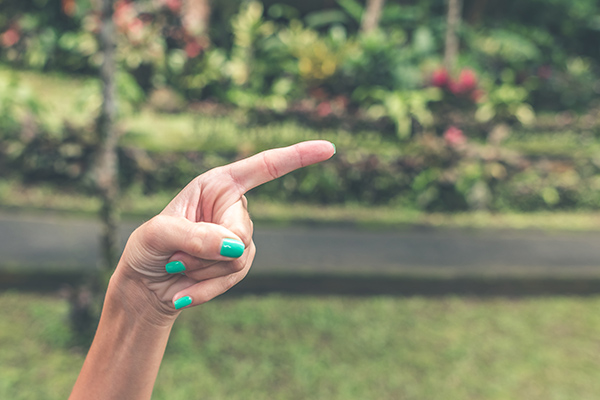
I wish our generation was more like that. We are more about security than freedom.
Here on the show, we’re learning to expand, stepping out of our box and opening up to more experiences. Some of us even have thought about the career that we have or that we’ve had, that perhaps we can open up to other areas of things that we’re passionate about. We’ve talked to guests too that have had six-figure jobs, and then they left on a dime to start something that they’ve been passionate about, and taking that leap is scary. Rachel, how about you?
I love that you’re using your passion to move forward and all the faculties and access you have to make good in the world. I’d love to know more about your new company and how people engage with you and how you can educate people and make them feel better. Also, do you feel unique in this venture? I know you were talking about Millennials in general, but there’s the politics of the world. I don’t want to say that it’s our generation that doesn’t care about the environment. There are people who don’t care as much about, and there are people that do. Your generation in general, and we all have kids close to your age and it makes me sick the state of the world and the priorities. I’m curious, do you feel that everyone is like you and everyone is trying to make a change for the better?
I would have to say with my company, my inspiration was my Kundalini yoga teacher. Her name is Desiree and she’s become a close friend of mine. She runs something called benshen course, which is an online Kundalini and life coaching course. She is someone who has brought about all of her different interests, her acupuncture training, her life coach training and her yoga teacher training to make one singular thing. When I was thinking of how can I contribute and thinking of Bedrock-Body, I was like, “I can come forth as myself with all of my different interests and present something that’s uniquely me, but that is complex in the way that all human beings are complex.”
I feel like I’m doing it uniquely in my way, but I don’t think that it’s something exclusive to my talent or whatever. I do have a way of curating things and activating people’s minds and being open-minded and wanting to have difficult discussions. I would say that’s uniquely me, but I do see a lot of people trying to combine their interests and trying to, whatever their talents are, be of service in some way, shape or form. That’s why I have a lot of different contributors with different talents come on. We’re not doing the same thing every week. One week we had someone come on and teach you baking brownies, for example, because I do believe in being happy, being nourished and fulfilling yourself in that way and being light. The next week we’ll have a discussion on the revolution, social justice and how to move forward. It’s about being wholesome and about being a fully fulfilled human being. I believe that applies to everyone.
Dena?
Rachel touched on what I was thinking, but when you were speaking, it sounds like you have a great perspective on balance. I’m wondering if you could elaborate a little bit more. On your day-to-day with the world the way it is, how do you keep balanced, happy and isolated?
The first step of nonviolent conscious communication is listening to people. Share on XI’m working on that stuff. That’s always a work in progress, but the way that I think of it in my mind is trying to balance the masculine with the feminine. This relates to my spiritual practice. The masculine or so-called more patriarchal force will be very organized, very to-do lists, single-minded productivity, which we’re all familiar with in our modern age versus a more feminine force, where I want to rest. Some days I want to sleep in. I need to listen to my body. I need to maybe eat a burrito versus eating super healthy. It’s about intuition and tapping in and listening to yourself. Mostly it’s also about connecting to the community and having that support. I wouldn’t be able to do all the work that I do and be inspired and have this much energy if it weren’t for especially the women around me. I have amazing guy friends, but my girlfriends are my rock. I find it beautiful when women come together and support one another in that way. If you ever do have a down moment, you’re doubting yourself or you’re wondering if you should even continue, having that support system is important to moving forward.
We talk about that all the time, especially in this show, we talk about not putting each other down. A lot of times, women and men, but especially I feel women, we put each other down. I see it in young girls too. I’m a teacher and I see young girls putting each other down and not lifting up and supporting each other. That support system is crucial. I would like to talk with you. You and I were speaking on the phone and you came out and said, “I want to have those tough conversations.” How do we start?
I would pose a question to all of you and maybe you can respond as you see fit. Within your own lives with your own talents, where can you be of service? What’s the unique quality that only you can do within your community, within your family? How do you believe your contribution matters during these times? It’s difficult for a lot of people to know where to start, but maybe we can have a little bit of this conversation. Even this show, even doing this episode, this has gone on in the world. We want to have this conversation. We don’t know how to maybe formulate it in the best way. People feel scared to ask questions, but I’m definitely here to build bridges. It’s my mission to be open and nonjudgmental. Whatever you feel like asking me.
We hope the readers too are open and nonjudgmental. The four of us are white women. For me, doing this show, creating awareness, absolutely. Having this discussion and having this episode, I have learned what’s coming out on the forefront of systemic racism for me. I’m realizing that when I was younger, a lot of different ways that I lived was racist. Now as an adult, I never ever had to have the conversation with my teenage son on what to do if he was stopped by a police officer. Hearing other women my age, other black women say that they had those conversations with their children, I have to understand that is something that’s prevalent. That’s always been, but yet I was ignorant of it. I am listening. I want to learn. I want to educate. I think that’s the first step.
It’s important to also have those revelations, but also not feel guilty about it. A lot of people like to use the term ‘white privilege’ and use it as a derogatory term and point fingers at people. The fact is you’re blessed and lucky that you never had to have that conversation with your children. That’s not something that anyone should have to do. The point is simply realizing that people are having different life experiences. People are in different life situations where they are being faced with this on a day-to-day basis. It’s something that they live with and that they’re embodied with. The question is simply like, “What can I do with this position of privilege? How can I use my voice? How can I learn from others and be open?” Also, within our families. Most of the work and most of the way of how we’re going to change the world is having these conversations with our families. The responsibility of having children and having them grow up with, that’s the new future for the generation that is growing up. That’s a lot of work already in and of itself.
We all live in Chicago and by that, I mean Downtown Chicago, not like we live in a suburb. We actually live downtown in Chicago. We sent our kids to various schools, high schools. You talk about community. We’ve got our family and then our kid’s school and our friends and your community expands from there. For me, I always felt my kids were blessed to be able to live in an urban center, in a diverse world around them. Their view of the world was far more expansive than growing up in a rural area or a suburb that was homogenous, but we’re all learning day-by-day. Social media has brought to light that even the schools that they went to, the high schools in particular when you’re coming of age. There are people, students, alumni, parents, these communities of people who are saying, “You didn’t have any idea what was going on. Let me tell you what my experience was. Let me tell you what happened, whether it was yesterday or twenty years ago when I was a student there.” My point of all this is that in addition to our own work that we do within our families, our own conversations that we have. By virtue of the fact that they live where they do, not that we believe that these things don’t happen, but I didn’t realize the extent to which the schools that my kids were at that all of this was going on.
I think it’s interesting. The environment definitely plays into a lot of your experiences. Being exposed to different environments can teach you a lot and having diverse environments is important. I don’t think you can take for granted the fact that even within that environment or that bubble, that different people are having various different triggers or things that are happening to them within the school hallways or what have you. Even with me within college, I had a lot of experiences where the Black Lives Matter Movement started when I was in college at Duke University. I would see the way that my black friends would react to this and how they were being active versus some of my white friends were acting. We were all in the same bubble. It’s a privileged, elite, highly-educated bubble, yet people’s paradigms in their minds were very different and how people felt responsible for certain things was different.
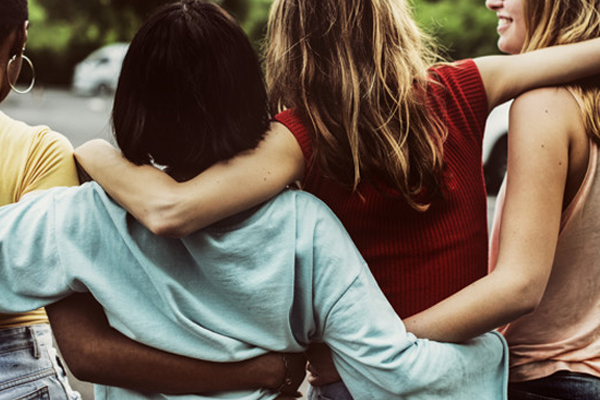
It’s important to acknowledge that no two people have the same experience, no two black people, no two brown people, no two Asians or no two white people. Everyone has their personal viewpoint and you can have the same conversation with another black person and they will give you a different opinion. It’s important for us to stay open-minded and to mostly listen. My teacher has taught me a lot about conscious communication. The first step of nonviolent conscious communication is listening to people. To understand that receiving that experience and understanding she’s different from me. He’s different from you. They’re different from me. It’s part of how we build bridges within our communities.
I want to add here that the whole notion of listening, this has been a very interesting time. The Black Lives Matter Movement, although I knew about it before, it hasn’t been until now that I’m actively in conversations. I’m actively reading the book, White Fragility. I’ve known about it, but I’m reading it now and engaging in these conversations. There is a beautiful thing happening where the news cycle isn’t turning over anymore. I do feel like it is a period of listening for all of us. I wanted to comment. I love how you talked about listening because I do believe that’s the key right now. We all need to listen and look and get outside of ourselves.
That comes in a lot within the wellness industry as well. There’s been a lot of questioning and redefining what wellness means. In the past years, there’s been a lot of emphasis on self-care. That’s that inward direction that you’re describing and taking care of the self, nourishing the self and finding prosperity for yourself. Maybe your nuclear family is a small extension of that. Now, I hear a lot of people having a different conversation and that is wellness does not exist without community and we cannot have wellness as a singular, individualistic thing. Individualism is not the way of the future, I believe.
It never has worked, but there’s a new reckoning happening now about how to come together and have wellness be for all people. For example, in New York, we have these free community fridges where people donate food. They put the food in the fridges on the street and then the people that need it to take it out. That’s a small thing that I’ve seen, but that has a large impact. I was sitting at one of my favorite coffee shops and seeing someone who needs food look into that fridge and find what they need, those resources. That’s shifting the community in real-time. It’s happening deeply. To have someone else bike by and to bring more food, people are aware of how wellness, eating well and taking care of yourself extends to other people. Those are the little things that I love to see happening.
That’s an incredible initiative whoever has started that.
I don’t know who started it, but it’s a trend and it’s especially in Brooklyn. I’ve seen it in a lot of different places. People will take old fridges and paint them and then they plug them into their stores in front of their coffee shops or whatever. It’s amazing.
Whoever is reading, if you are doing that, please reach out to me because I’d love to have a conversation with you. I would like to dive a little deeper. You asked us what we’re doing. We’re reading, we’re listening. We’re educating. I know my daughter, who’s in her twenties, is posting a lot on social media about injustices that are going on. I’m trying to use this platform to spread awareness and there’s often that question, “What else can we do?” I’m not asking you to answer that broad question, perhaps we can just have that discussion. I like the idea of not going inward in self-care but looking outward to the community. What are other ways that we can express that and work on that?
No real change happens from someone telling you what to do. Share on XIt’s important for people to figure that out for themselves honestly, because no real change happens from someone telling you what to do. I know that there are a lot of offerings out there. For example, I’m designing an entire course that is going to start in September. It’s going to be a month-to-month course. It’s going to be about having these discussions with professors and people in various fields who are having questions. Everyone has to find the space within themselves. My goal is to build leaders in their own fields and with their own talents. For example, my friend who’s a chef, she didn’t know what to do at the beginning of all this. She was like, “I’m at a loss. I don’t know where to start.” I was like, “Why don’t you come on my platform and teach us how to make bone broth? I honestly have not eaten properly. I’m stressed out, I’m tired. I can’t function if I’m not nourishing myself. Your talent of being able to make the best bone broth in Savannah,” which is what she’s known for. She was in the local newspaper. That’s a unique talent and it’s useful to a lot of people.
We need to sustain ourselves and our bodies in order to go out there in the world and to be as powerful as we can be. It’s an individual question, but my goal is always to inspire people by what I’m doing or by sharing other people that I know who are working in various fields. That exposure helps people to find out like, “I can do this thing. I have a unique talent that I haven’t used in a while or that I would like to explore a new field and start somewhere.” It doesn’t have to be big but it has to feel right to you.
Rachel, you said you were reading White Fragility, which I listened to her podcast and read that book. Ella, have you read it?
I have not read it. To be honest, for myself, I prefer to read black and brown writers, even queer writers, because I like to listen to the voices that are the most radical. For me, I’m looking at my table, I’m reading The Autobiography of Malcolm X. To dive into these leaders who were revolutionary, but I feel they’ve been stereotyped in our popular culture, in our history books. They’re complex individuals. That’s why a lot of my course will be about looking into the complexity of these individuals and these voices that we think we know. We think we know Rosa Parks, we think we know MLK, but we don’t. It’s by looking at these leaders that we can inspire ourselves to be complex, to be imperfect and to still show up at the table. MLK was 26 when he started first doing his speeches. These are young radicals who had different points of view than the clickbait and the quotes that we all see going around that are sometimes taken out of context. It’s very important for me to centralize those black and brown voices because they’ve been unheard of in the past. I’ve heard a lot of people reading the White Fragility book, but for me, I would rather read some bell hooks.
Another book though that I highly recommend is I’m Still Here by Austin Channing Brown. She is a black writer and what struck me in her biography and her book is she wrote about her hair. She talked about her hair and how when she was younger, everybody wanted to touch her hair. Also, she talked about the black community because being in certain groups that she was in and trying to define herself in her own community, as well as the white community. That’s an excellent book to read.
I haven’t read it. I will say that hair is a big thing. It’s an identity thing and it’s belonging to a lineage and it’s an art as well. I put my hair in braids and it made me feel different. We’ve all had the experience of a haircut or something and see how we feel differently in the world. It’s very profound for black women to talk about hair. For example, I used to straighten my hair my whole life because I wanted to match this white ideal of beauty, which was straight, flat hair. I thought that was beautiful because those are the images being imprinted in my mind. Their white supremacy ideals are ingrained within yourself. It’s interesting to look at them and to see how you’re not exempt from that self-hatred sometimes of wanting that white ideal. These are difficult conversations to have. I feel different when I embrace my hair texture versus when I try and fight it. That’s a self-acceptance thing. It’s deeply personal. I’ve cried about my hair a lot. It’s been a journey, but we could do a whole show on that.
It’s about how you choose to wear it. It’s a political thing, as personal as it’s political. For example, we all associate the imagery of the Afros with the Black Panthers, for example, and the reason why they were doing that was black power, black is beautiful. That message that they had was avant-garde at the time and intercepted with the hippie movement and being more natural. Now, there’s a lot of pressure on black women to wear their hair naturally because that’s more “authentic.” If you don’t want that as an individual, does that mean that you’re suppressing yourself if you would rather have straight hair? It’s a whole complex conversation, but you can see within this one subject how complex it can be and how personal it is as well.
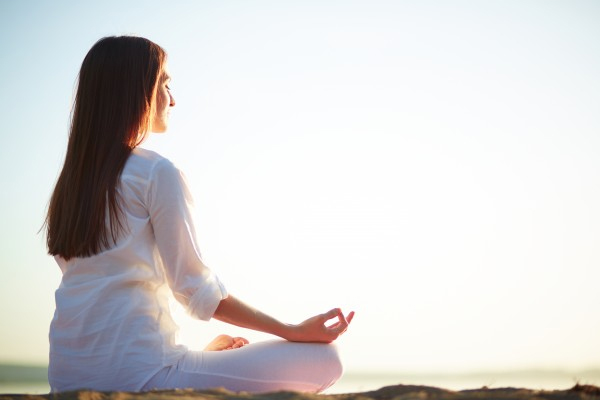
Ella, what is your take then on removing books, media or content? We’ve seen that a lot in the news and people talking about it from both sides of the conversation. I’m curious what your thoughts are.
My personal take, and again this is me, someone may have another opinion, but I don’t believe in removing or banning any books. I’m thinking back to the time in college when I was taking a History class on Weimar Germany. We read big sections of Mein Kampf. I know that book is banned in Germany. You’re not allowed to sell it. The openness of being able to read any resource and to read it with a critical mind, that education is mostly about not, “This is what you should think, but this is how you should approach thinking for yourself.” Real intelligence to me is being able to pick up any resource, any book and to say, “I don’t believe in this or I do believe in this.” I credit a lot about my diverse education and being exposed to different authors.
There’s a whole thing now of canceled culture like, “This person’s canceled.” I don’t believe in that. I believe in having the difficult conversations and sitting down and confronting the difficult questions without being like, “We should burn that book or never read that book in high school ever again,” or whatever. For me, it’s about uplifting certain voices, uplifting black and brown voices, and other minorities as well, Native Americans, Asian-Americans or international writers as well. Also being able to read that Robert Frost, Walt Whitman. That brought me so much. It would be interesting to see moving forward, especially during the pandemic, how syllabi are going to change in schools. That will be interesting to see.
I would like to ask you, because you’re 26, if you could talk to yourself in 25 years, and we’re in our 40s and 50s, what would you say to yourself? Where do you see yourself at that age?
I see myself with a lot of land. I want to grow my own food. I want to educate people about returning to the Earth and to nature. That’s a big part of who I am and I hope to do that in the future. My dream is to make goat cheese. I don’t know why that’s my dream, but I see myself at the farmer’s market selling goat cheese. It’s that kind of simplicity and I would tell myself to never settle. I would hope that I say as avant-garde and as changeling as I am. I know that my mom is also an artist and she’s always also changing. I hope to keep that youthful energy of being curious and being open-minded. Even when I think I know everything, to not settle for that and to keep exposing myself to more and more and being open, remaining open.
I honestly am getting many chills throughout this episode. I don’t know about you guys, but you are wise. You are an old soul. You are learned. We think as we get older, we go through a lot of experiences and we learn from them. No matter what age we are, we need to talk and have conversations with 3-year-olds and 90-year-olds and those in between. We’re all human beings and we are all growing and evolving. In your life, you’re experiencing life and being passionate. If people do want to contact you and talk with you or see what you’re doing, how can they do that?
I have the Instagram, @BedrockBody. I also have my website, which is Bedrock-Body.com. I’m all about building bridges and having a diverse community. I’m interested to engage with more people for sure.
Exposing kids to books, movies, music, and having different external stimuli can shape a child's brain. Share on XThank you for helping to build this bridge with us. Now, my name is Karen. I told you that my kids said to me, “Mom, you need to change your name because there’s the Karen thing going on.” While I do not identify with that type of woman, that characteristic, if you look it up, she is a white, middle-class, privileged woman. I wanted to know your thoughts on that.
I think meme culture is its own thing. It’s not good to make fun of anyone whatsoever at the expense of anyone. To laugh and point fingers on people, I don’t support that in general. People can get carried away with that, especially on the internet because they don’t realize that real people are being affected. For you, I would say you have to embody fully who you are and I wouldn’t change your name. I would embrace the name and prove to people that it is a stereotype and all stereotypes and all prejudices are not good. That’s not what we’re moving forward with on either side of the aisle.
I appreciate that.
If you do want to speak about the white woman in the suburbs, I will say that the white woman in the suburbs has a lot of power and a lot of influence over her family. Especially with the election coming up, either way, everyone has a civic duty. You also have to go beyond the voting and that civic duty. The white woman as a demographic has always had a lot of responsibility and we need to pay more respect to those women who whether they’ve chosen to pursue their careers or not. It’s a whole job to raise a family. That’s the future that we’re looking towards. Those are the children that are going to run the world. Embrace your name.
I’m going to start a new trend of Caring Compassionate Karens.
This is wonderful. The ladies know how I’ve been feeling about what’s happening in our world and where to dive in and help or what to do first and all these things. I expected to say a lot more. I was really content to listen to you and your wisdom. This is great. I work to do, there’s no question about that. That will change moving forward. You’re lovely to listen to and you have so much wisdom. I appreciate you.
It doesn’t matter if you’re 26. When we look inside, you see what your passions are, what your skills are, your talents, your background. There are many different ways to tap into that. Use all that for good for the world. Put things out there, have these conversations to add value in places that you can. One of the silver linings of this quarantine is that we’re all learning a lot about ourselves as well. Not that we’re only looking inside. We’re certainly doing a lot of looking at the world that we live in. It is giving us this opportunity to maybe even discover new things, new challenge, new skills. The silver lining is now we have a little bit more opportunity to do that. It doesn’t matter how old you are. I like that you’re doing a phenomenal job of literally tapping into all of what you have, what you can give and what you can offer and finding many different ways to do that. We can all put that in the lesson book of what we should all be doing no matter how old we all.
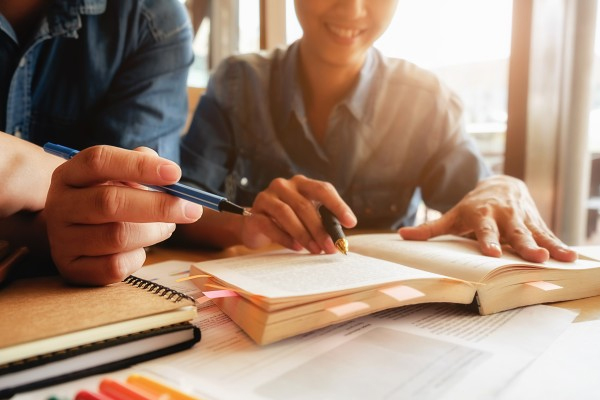
Thank you, Ella, for giving us life lessons from a Millennial. Thank you for joining us on the show.
Thank you.
—
Welcome to Favorite Things with our guest, Ella St. Hilaire. We’re going to talk about favorite things. It could be rituals, objects, photos, colors, the blue sky, anything that brings you joy and happiness. As we know, when we focus on positivity, we bring more positivity into our life. Dena, would you like to start?
I have to say, when we sat down, I literally forgot my favorite thing. I don’t even know how it happened. I had some lip balm with me and I was going to use that. I’m sitting here thinking about it. I’m like, “No.” I don’t have the actual object to show, but I will tell you one thing that my youngest daughter and her best friend are doing. They are decorating rocks during the quarantine. It’s the way that these two best friends can get together on each other’s back decks. They’ve been putting them around our neighborhood and they put one in front of our home and they’re gone. Kids or people are taking them for their messages or their decorative nature. It’s been fun and inspiring. A friend of mine has a home in Indiana and she brought back big rocks. We wanted to start doing messages and putting those around. It makes me happy that they’re being enjoyed by the neighbors or neighbors’ kids. They’re on these scavenger hunts for them.
What messages are written on it?
They’ve done different things like “love and peace” and “we’re all in this together.” Leslie Jordan’s my favorite Instagram. They do everything like a ladybug, Donald Duck.
Rachel, what’s your favorite?
In this episode, we’ve been talking about your passion and being artistic. I’m at the Jersey Shore staying with my in-laws. My mother-in-law knits beautiful blankets. She makes beautiful jewelry and she does all of this. This is the primary side. It’s beautiful. Every year, she gets me a gift for my birthday and one year I said, “All I want is one of your pieces of jewelry.”
Does she sell them?
Sometimes.
We need to add a link to the website for her if people want to take a look at her pieces. You’ve got to start a business now that we’re in quarantine and she can sell them.
Rachel, I want one of those.
It’s beautiful and colorful. It certainly puts a smile on my face to look at it. Alyssa, how about you?
Mine is not nearly as artistic as Dena and Rachel’s, but it is something that’s getting me through quarantine. I discovered a local company. I love supporting local businesses, especially now, but this company also does business throughout the US and it’s called EatCooked.us. What they do is they provide prepared healthy meals. My family, there are four of us living under one roof, operating on four totally different schedules. I decided I no longer want it to be a short-order cook. These meals come packaged and prepared. You’re ordering them by the week, they are not expensive. You basically peel off the top and it’s ready to go. It couldn’t be any easier. I do feel like the ingredients are simple and fresh. On those days and the times when I can’t cook anymore, it’s been a lifesaver.
I am quarantining here in Canada. I came to visit my son and my parents. While I’m here, there’s a beautiful artwork. My mom and my dad painted that. I’m excited, and this is going to be one of my favorite things. I don’t consider myself an artist, but I am excited to be with my parents and my children altogether. I’m missing my husband, but we are going to paint. These are canvases and I’m excited for this favorite ritual of being with my parents. The favorite thing for me is not so much the product, as much as I love the product of what they made. I can’t wait to paint with them on that journey. That’s my favorite thing. Ella, how about you?
I brought a little totem or object. It’s a ceramic from Morocco that I got the last time I was there. Morocco is an important place for me. I lived there for four months and then I went back twice in 2018. I have a lot of connections there and I put this on my altar. Every morning, I have a meditation practice. It’s a beautiful blue eye and it reminds me to tap into my intuition, to listen to myself, to ground down. It’s a favorite thing and a ritual at the same time, but it holds a lot of special energy for me. That’s my daily reminder to listen.
When you meditate, do you focus on the third eye?
Yes, in some meditations. Especially when you’re imagining your vision or what you want to come to fruition, you project through the third eye. It’s powerful.
We’re going to have to have you on again to talk about that and also a hair episode too. Thank you for joining us on the show. You are definitely the ultimate Millennial goddess.
Thank you for having me.
Important Links:
- Ella St. Hilaire
- @BedrockBody – Instagram
- benshen
- White Fragility
- I’m Still Here
- Mein Kampf
- Bedrock-Body.com
- EatCooked.us
About Ella St. Hilaire
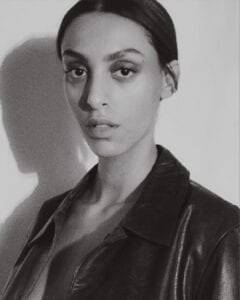 In this episode we talk with 26-year-old Millenial Ella St. Hilaire about her passions and her new business, having that tough yet necessary conversation needed about social injustice and inequality.
In this episode we talk with 26-year-old Millenial Ella St. Hilaire about her passions and her new business, having that tough yet necessary conversation needed about social injustice and inequality.
How we can be of service to our community- old soul Ella teaches us how to be a soulful young goddess- any mean spirited conversations can be hurtful to the soul and how important it is to be caring and compassionate even if your name is Karen.
